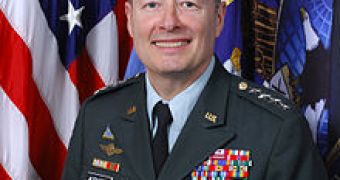On Wednesday, General Keith Alexander, the commander of the US Cyber Command (USCYBERCOM) and the director of the National Security Agency (NSA) testified before the Senate Committee on Appropriations on how the US was preparing to handle cyber threats.
Alexander has highlighted the challenges that the USCYBERCOM and the NSA, particularly the Central Security Service, face in their mission to protect critical infrastructure, secure national security systems, and defend the nation’s interests in cyberspace.
“Cyber programs and capabilities are growing, evolving, and spreading; we believe it is only a matter of time before the sort of sophisticated tools developed by well-funded state actors find their way to groups or even individuals who in their zeal to make some political statement do not know or do not care about the collateral damage they inflict on bystanders and critical infrastructure,” he noted.
The NSA director hasn’t directly mentioned anything about the controversial PRIMS program in his testimony. However, he has emphasized the fact that “everything depends on trust” when it comes to protecting the nation against cyber threats.
“We operate in a way that ensures we keep the trust of the American people because that trust is a sacred requirement. We do not see a tradeoff between security and liberty. It is not a choice, and we can and must do both simultaneously. The men and women of USCYBERCOM and NSA/CSS take this responsibility very seriously, as do I,” he said.
Commenting on the General’s statement regarding the protection of critical infrastructure, Lila Kee, GlobalSign chief products and marketing officer and North American Energy Standards Board (NAESB) member, says the concerns voiced by Alexander are legitimate.
“General Keith Alexander’s concerns voiced in front of the Senate Appropriations Committee are legitimate, define the state of cyber defense today, and make it very clear that cyber warfare is a reality that must be faced by our nation,” Kee said in a mailed statement to Softpedia.
“Cyberattacks continue to advance and surpass the antiquated security solutions that are currently in place, making our government networks and critical infrastructure vulnerable to strikes from other nation states, cybercriminals or hacktivists,” she added.
“We know for a fact that attacks on energy providers have increased exponentially over the course of the past few years. And, while security solutions have become more sophisticated during that time so have the attacks. It is imperative that proper defenses be put in place to protect our government and critical infrastructure,” she said.
“As General Alexander explained in his testimony, the private sector owns 90 percent of the nation’s critical infrastructure. This underlines the importance of government and private sector working together to set standards that hold energy providers accountable for the security of their networks and as a result the protection of our citizens.
“NAESB has led the way in the creation and adoption of cybersecurity standards for energy providers. It is my hope that the rest of the critical infrastructure suppliers do the same.”

 14 DAY TRIAL //
14 DAY TRIAL //